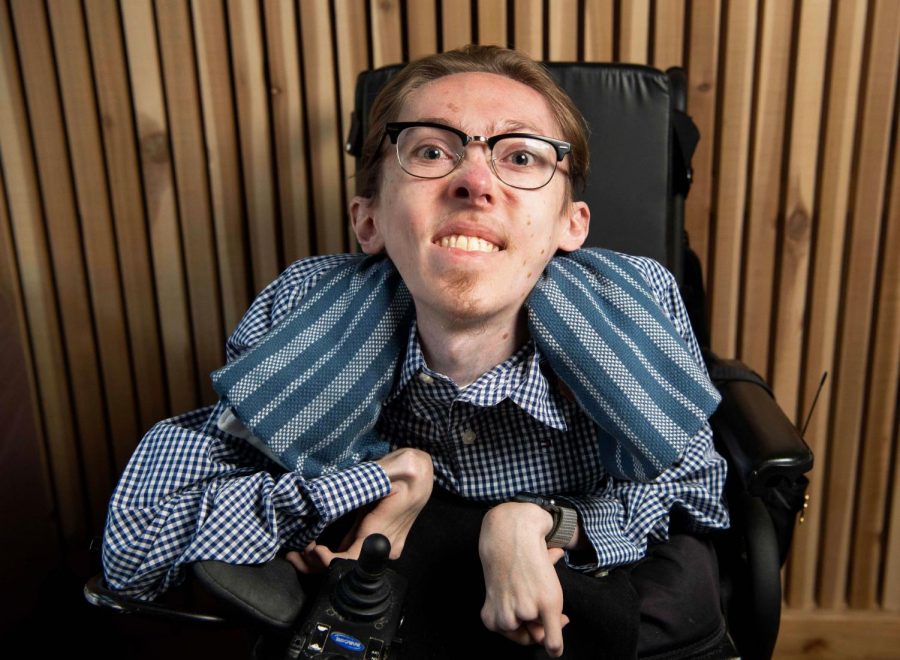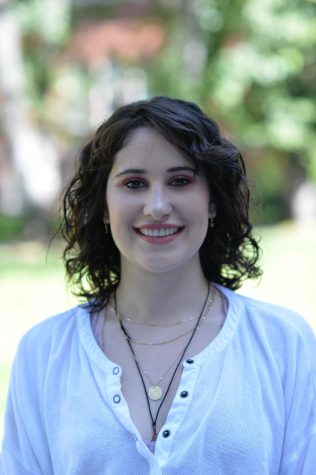Access Center, disabled students club host virtual disability awareness series
Underrepresented perspectives at the forefront of speaker series this fall; includes speakers from several backgrounds, life experiences
Steve Way, actor and comedian with muscular dystrophy, will speak about healthcare for Americans with disabilities from 3-4:30 p.m. Wednesday.
September 14, 2020
Speakers will emphasize how intersectionality affects those who live with disabilities during a WSU-systemwide virtual disability awareness series this fall. Events will start this Wednesday and continue until November.
Steve Way, actor and comedian with muscular dystrophy, will kick off the series with his presentation on healthcare for Americans with disabilities from 3-4:30 p.m. Wednesday.
Davi Kallman, awareness coordinator at the WSU Access Center, said the speaker series will also feature Anita Cameron and Stephanie Woodward, who will both speak about their experiences living with disabilities.
“We were taken by everything happening in the world and really thinking about our Black colleagues and friends and peers, and how people often do not think about the intersection of disabilities and other factors,” Kallman said.
Cameron, a Black woman who identifies as lesbian, will have an underrepresented perspective about how these identities impact her life as an American, Kallman said.
“Topic-wise, the one I’m really excited to hear about is how the intersectionality of race, sexual orientation and having a disability combines, and how those stigmas in society and media [have] affected these individuals who have all of these layers,” said Mikayla Beckley, vice president of Disabled Students and Allies Club at WSU Pullman.
Woodward works as a crime victims attorney at the Empire Justice Center and will speak about how misogynistic comments, especially toward women with disabilities, can contribute to domestic violence, Kallman said.
Beckley said she hopes the series empowers those who have disabilities and educates those who do not. Media depiction of those who have disabilities has improved, but Beckley said she hopes events like this open a larger conversation.
“[You’re told], ‘OK, if you’re disabled, you need to keep it to yourself. You need to try to hide from it,’” Beckley said. “We know now that it’s completely wrong.”
Kallman said university officials will open the series, including Mary Jo Gonzales, vice president of student affairs, and Bruce Pinkleton, dean of the Edward R. Murrow College of Communication.
Active support from the university will help tackle accessibility issues on WSU’s campuses, Kallman said.
“If we can’t change our attitudes, there’s no way we can make physical improvements at the university,” Kallman said.
Speakers in October will include Leroy Moore and Jose Rosario. Activist Sara Minkara will speak in November.
Moore wears several hats as an activist, poet and musician — to list a few. He will speak about what “Black disabled resistance looks & sounds like through time,” according to his page on the WSU Access Center’s website.
Rosario is a mental health activist who will present on how he acknowledges his multiple identities as a “Latino, gay man who utilizes a wheelchair,” according to the Access Center website.
Minkara will make a case in November for how to authentically include people with disabilities into conversations about politics and accessibility.
Minkara is a Lebanese-American woman who lost her sight at 8 years old, according to the Access Center website. She started Empowerment Through Integration, which works to decrease stigma around women with disabilities in the East-North Africa region.
Those interested in registering do not have to attend WSU or be in Pullman to enjoy the speakers, Kallman said. Increased virtual access is the one upside to the coronavirus pandemic forcing everything to be online, she said.
Beckley said she hopes everyone registers to learn about the lived experiences described by the speakers.
“You know what, none of these conversations have been happening, so let’s have them,” Beckley said.












Davi Kallman • Sep 14, 2020 at 4:54 pm
Great story Sydney! Thanks for bringing attention to this important issue!
Harold A Maio • Sep 14, 2020 at 10:31 am
As accustomed as we are to say “disabled” students, there are many ways in which we disable, language being a major contributor. How best to disable someone? Deprive her/ him of voice.
And as accustomed as we are to directing the term “stigma”, it effectively masks the experienced realities, prejudice and discrimination.
Harold A Maio, retired mental health editor